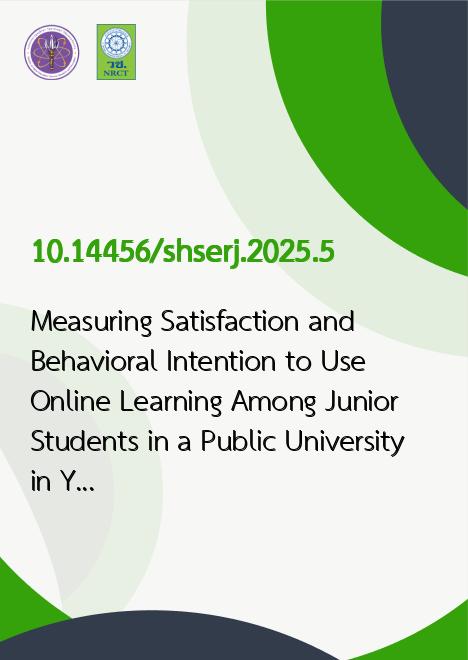
|
Measuring Satisfaction and Behavioral Intention to Use Online Learning Among Junior Students in a Public University in Yunnan, China |
|---|---|
| รหัสดีโอไอ | |
| Creator | Zhiyun Li |
| Title | Measuring Satisfaction and Behavioral Intention to Use Online Learning Among Junior Students in a Public University in Yunnan, China |
| Contributor | Monthol Prathumarach |
| Publisher | Assumption University Press |
| Publication Year | 2568 |
| Journal Title | The Scholar: Human Sciences |
| Journal Vol. | 17 |
| Journal No. | 1 |
| Page no. | 43-52 |
| Keyword | Online Learning, Task-Technology Fit, Content Quality, Satisfaction, Behavioral Intention |
| URL Website | http://www.assumptionjournal.au.edu/index.php/Scholar/article/view/7721 |
| Website title | The Scholar: Human Sciences |
| ISSN | 2586-9388 |
| Abstract | Purpose: This study investigates factors impacting third-year student satisfaction and behavioral intention in a public university in Yunnan, China. The research model is built upon service quality, teacher quality, task-technology fit, learning material quality, perceived usefulness, satisfaction, and behavioral intention all have causal linkages. Research Design, Data, and Methods: The researchers sent questionnaires to junior students at four colleges of Yuxi Normal University using a quantitative approach (n=500). The researcher utilized judgmental, quota and convenience sampling to collect the data. Before data collection, the Item Objective Congruence (IOC) and Cronbach's alpha were utilized to guarantee reliability and validity. The data were analyzed using confirmatory factor analysis and structural equation modeling, which included model fit, reliability, and validity assessments. Results: It has been demonstrated that seven hypotheses satisfy the study's goals. Task-technology fit, teacher quality, and service quality all greatly impact perceived usefulness. The educational content's quality, perceived value, and satisfaction highly influence student behavioral intention. Conclusion: To raise students happiness and behavioral intention about online learning, school administrators and instructors should maintain a pleasant online learning environment, improve academic achievement, increase instructional care, and develop a favorable image of the school. |
